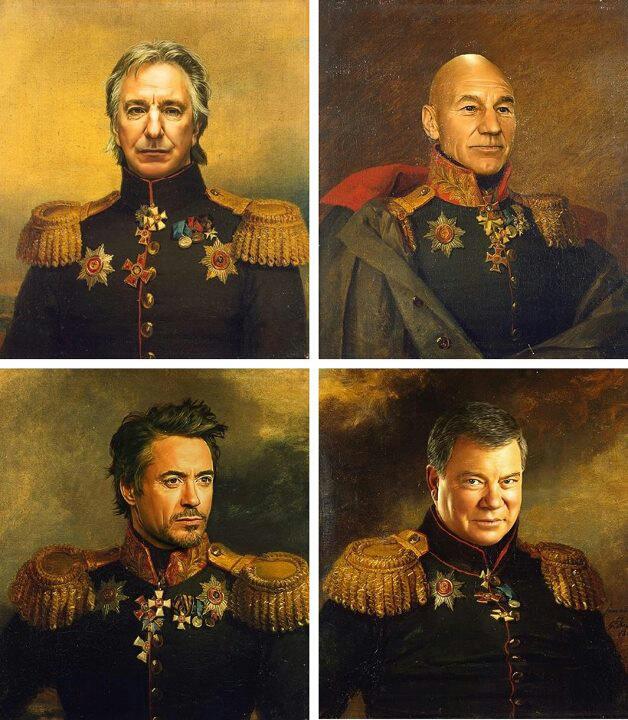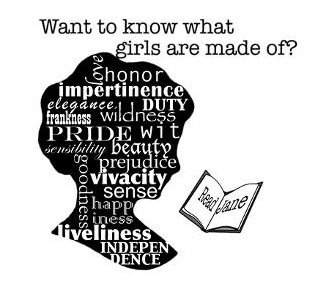I gotta tell you guys: I am having a Sense and Sensibility THING.
Do you all do this? A few years ago, I went through a phase where I re-read Pride and Prejudice, watched the Keira Knightley version, watched the Colin Firth/Jennifer Ehle version, re-read Bridget Jones’s Diary, watched THAT movie a hundred million couple of times, sought out Bride and Prejudice…there are just a lot of Pride and Prejudice adaptations out there, and I watched and read a bunch of them, is what I’m saying. (I did not watch the 1980 BBC version, as this was before the days of this site and I didn’t know any better, but I want Mrs. Fitzpatrick to know that I hear her exasperation in my head retroactively.)
That was awhile back. Where this new Sense and Sensibility yen came from, I couldn’t say, but here we are.
Somewhat sacrilegiously, I think, I skipped the actual novel this time; I’ve read it relatively recently, and decided to opt for Netflix and instant gratification instead. And, okay, the pickings for Sense and Sensibility adaptations are slimmer than they are for Pride and Prejudice, but I think what Sense and Sensibility lacks in quantity, it makes up for in quality: the modern adaptations of it are both excellent. (The other option here is From Prada to Nada, which I haven’t seen, but which has jumped up the Netflix queue in recent weeks.)
I don’t own a single adaptation of Sense and Sensibility, which now strikes me as completely insane. Why don’t I keep the Emma Thompson version on hand? I love the Emma Thompson version! (Fun fact: I have a clear memory of seeing it in the theater, then promptly and enthusiastically re-creating the entire plot for a friend the next day. This is, of course, why I’m so great at parties.) Being from the mind and the pen of Thompson herself, it understandably does many many things well; despite the 90210-ing of several actors’ ages, she makes it work (mostly). Elinor’s freakout at the end, in particular, never fails to impress.
(Speaking of the aging-up of actors, both modern adaptations cast Colonel Brandon as significantly older than he is in the book—fifty-one for Alan Rickman and forty-four for David Morrissey—which I think makes cultural sense, considering the shift in life expectancies since the good old days. Otherwise, the old dude is, like, Ryan Gosling or something.)
I remember liking the 2008 version very much…and then never tracking it down again. I’m now about halfway through, and enjoying it completely—among other things, it’s from that post-Ruth Wilson Jane Eyre period where the BBC decided to get with the times, visually, and it’s both true to the novel (despite some dialogue modernization magic on Andrew Davies’s part) and modern enough to appeal to a wider audience. I’m particularly loving Janet McTeer as Mrs. Dashwood and the girl who plays Margaret—Lucy Boynton, IMDB tells me, and she is comic gold here—and I have to say that if anybody is going to make a better Edward Ferrars than a young Hugh Grant(!), I think it has to be a young and extremely floppy-haired Dan Stevens, playing to type in the best way possible. (Will Edward and Elinor ever be able to express their sweet selves properly and live happily ever after? Don’t tell me how it ends!) (Poor Marianne. I love her, but I’m such a fan of Elinor that I tend to overlook her a bit. Also, ever since Miss Osborne brought it up, I’ve been a little horrified that she ends up with only a nice, relatively happy marriage to the good Colonel.)
Since I took up this new, uh, interest, I’ve been thinking about what makes Sense and Sensibility such a crowd-pleaser. Why do I recommend it to so many new Austen readers? Why does it lend itself to such good adaptations? But also, why is it similar to Pride and Prejudice but always a little in its shadow? My current theories have to do with the simplicity of the story and the relatively small cast of characters (compared to, say, Pride and Prejudice or Mansfield Park); it’s a pleasant story with something for everybody, regardless of temperament; on the other hand, maybe neither Elinor nor Marianne carries as much sparkle as Elizabeth Bennet. I don’t know. So many thoughts! What do you think, readers?




